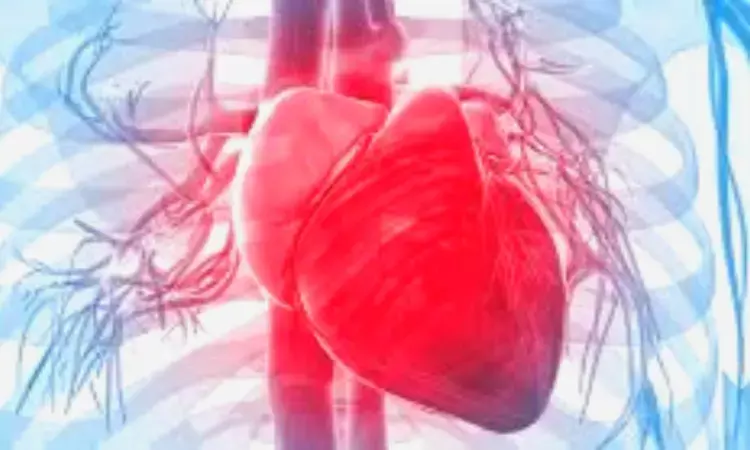- Home
- Medical news & Guidelines
- Anesthesiology
- Cardiology and CTVS
- Critical Care
- Dentistry
- Dermatology
- Diabetes and Endocrinology
- ENT
- Gastroenterology
- Medicine
- Nephrology
- Neurology
- Obstretics-Gynaecology
- Oncology
- Ophthalmology
- Orthopaedics
- Pediatrics-Neonatology
- Psychiatry
- Pulmonology
- Radiology
- Surgery
- Urology
- Laboratory Medicine
- Diet
- Nursing
- Paramedical
- Physiotherapy
- Health news
- Fact Check
- Bone Health Fact Check
- Brain Health Fact Check
- Cancer Related Fact Check
- Child Care Fact Check
- Dental and oral health fact check
- Diabetes and metabolic health fact check
- Diet and Nutrition Fact Check
- Eye and ENT Care Fact Check
- Fitness fact check
- Gut health fact check
- Heart health fact check
- Kidney health fact check
- Medical education fact check
- Men's health fact check
- Respiratory fact check
- Skin and hair care fact check
- Vaccine and Immunization fact check
- Women's health fact check
- AYUSH
- State News
- Andaman and Nicobar Islands
- Andhra Pradesh
- Arunachal Pradesh
- Assam
- Bihar
- Chandigarh
- Chattisgarh
- Dadra and Nagar Haveli
- Daman and Diu
- Delhi
- Goa
- Gujarat
- Haryana
- Himachal Pradesh
- Jammu & Kashmir
- Jharkhand
- Karnataka
- Kerala
- Ladakh
- Lakshadweep
- Madhya Pradesh
- Maharashtra
- Manipur
- Meghalaya
- Mizoram
- Nagaland
- Odisha
- Puducherry
- Punjab
- Rajasthan
- Sikkim
- Tamil Nadu
- Telangana
- Tripura
- Uttar Pradesh
- Uttrakhand
- West Bengal
- Medical Education
- Industry
Complications of alcohol septal ablation for HCM not tied to worse outcomes

Czech Republic: The occurrence of high-grade conduction disturbances in patients with obstructive hypertrophic cardiomyopathy (HCM) treated with alcohol septal ablation (ASA) did not convert into worse long-term survival, according to a registry study. The findings appeared in a recent JACC: Cardiovascular Interventions on Sep 14, 2022.
The study found that patients with HCM treated with ASA have a 9% likelihood of permanent pacemaker (PPM) implantation within 20 days following ASA. In long-term follow-up, PPM patients had similar long-term survival and lower New York Heart Association functional class, albeit lower LV outflow gradient, a lower LV ejection fraction, a pronounced decrease in pronounced LV outflow gradient, and a lower risk of intervention versus patients without PPM.
Hypertrophic cardiomyopathy is the most frequently inherited cardiac disease having a prevalence of 0.2% to 0.5%, and about 15 to 20 million people are affected globally. Many patients have left ventricular outflow tract (LVOT) obstruction at rest or with provocation; this may lead to worsened symptoms. Septal reduction therapy (SRT) through either alcohol septal ablation or surgical septal myectomy is an international option for patients with symptomatic obstructive HCM despite guideline-directed medical therapy. Both SRT types are given the same recommendation level in the guidelines; no randomized trials have compared these interventions.
Based on the above, Josef Veselka, University Hospital Motol, Prague, Czech Republic, and colleagues aimed to investigate the outcomes of patients with implanted permanent pacemakers associated with a high-grade atrioventricular block after ASA for (OHCM).
The researchers used a multinational registry (the Euro-ASA registry) to evaluate the outcome of PPM patients after ASA.
The study's key findings include:
- Enrollment was done for 1,814 patients and followed up for 5.0 ± 4.3 years (median = 4.0 years).
- 9.4% of patients underwent PPM implantation during the first 30 days after ASA.
- Using propensity score matching, 139 pairs (278 patients) constituted the matched PPM and non-PPM groups.
- Between the matched groups, there were no long-term differences in New York Heart Association functional class (1.5 ± 0.7 vs. 1.5 ± 0.9) and survival.
- Patients in the matched PPM group had a more pronounced LV outflow gradient decrease (81% ± 17% vs. 72% ± 35%), lower long-term left ventricular (LV) outflow gradient (12 ± 12 mm Hg vs. 17 ± 19 mm Hg), and lower LV ejection fraction (64% ± 8% vs. 66% ± 8%) and were less likely to undergo reintervention (re-ASA or myectomy).
"The findings of the present study better inform the shared decision-making process for patients with symptomatic oHCM," Andres M. Pineda and Andrew Wang wrote in an accompanying editorial.
"With the availability of novel, recently approved cardiac myosin inhibitor, Mavacamten for oHCM patients considering SRT, there is more option for effectively improving heart failure symptoms and reducing the LVOT obstruction."
"Additional studies are needed on the clinical implications of PPM-related, nonfatal complications, specifically long-term functional and QoL outcomes on HCM patients after ASA," they conclude in their editorial.
Reference:
Veselka J, et al. "Outcomes of patients with hypertrophic obstructive cardiomyopathy and pacemaker implanted after alcohol septal ablation" JACC Cardiovasc Interv 2022; DOI: 10.1016/j.jcin.2022.06.034.
Dr Kamal Kant Kohli-MBBS, DTCD- a chest specialist with more than 30 years of practice and a flair for writing clinical articles, Dr Kamal Kant Kohli joined Medical Dialogues as a Chief Editor of Medical News. Besides writing articles, as an editor, he proofreads and verifies all the medical content published on Medical Dialogues including those coming from journals, studies,medical conferences,guidelines etc. Email: drkohli@medicaldialogues.in. Contact no. 011-43720751


